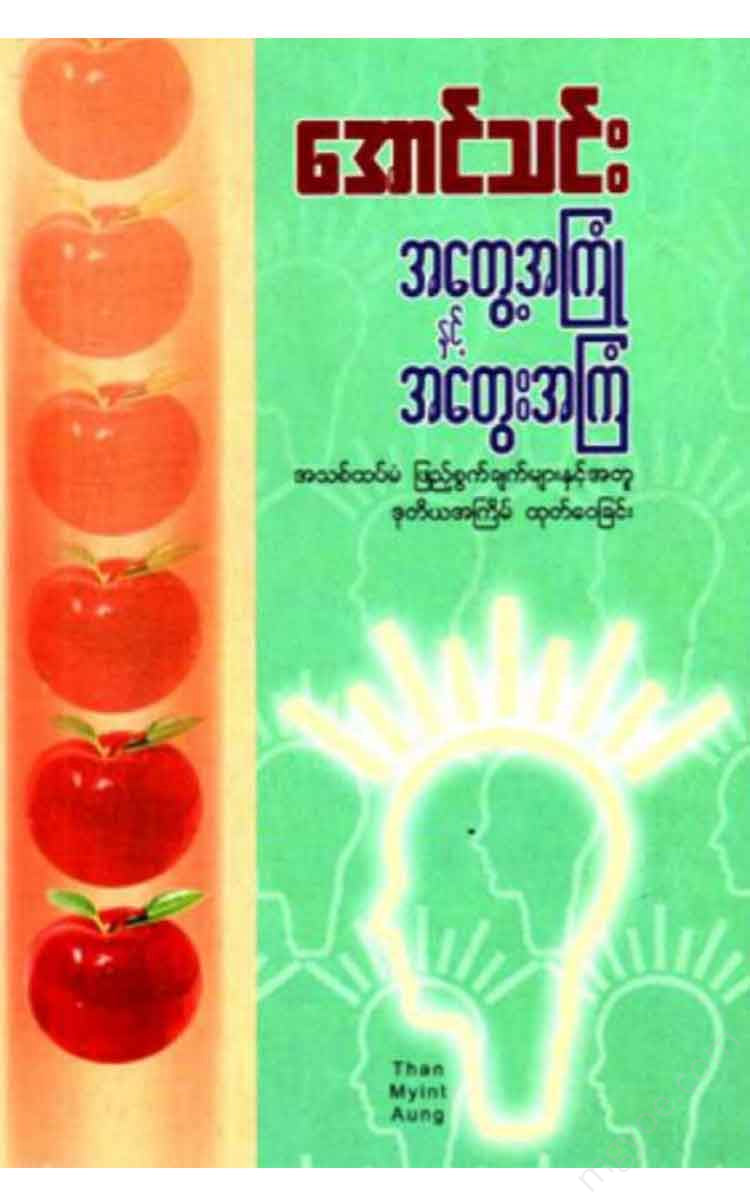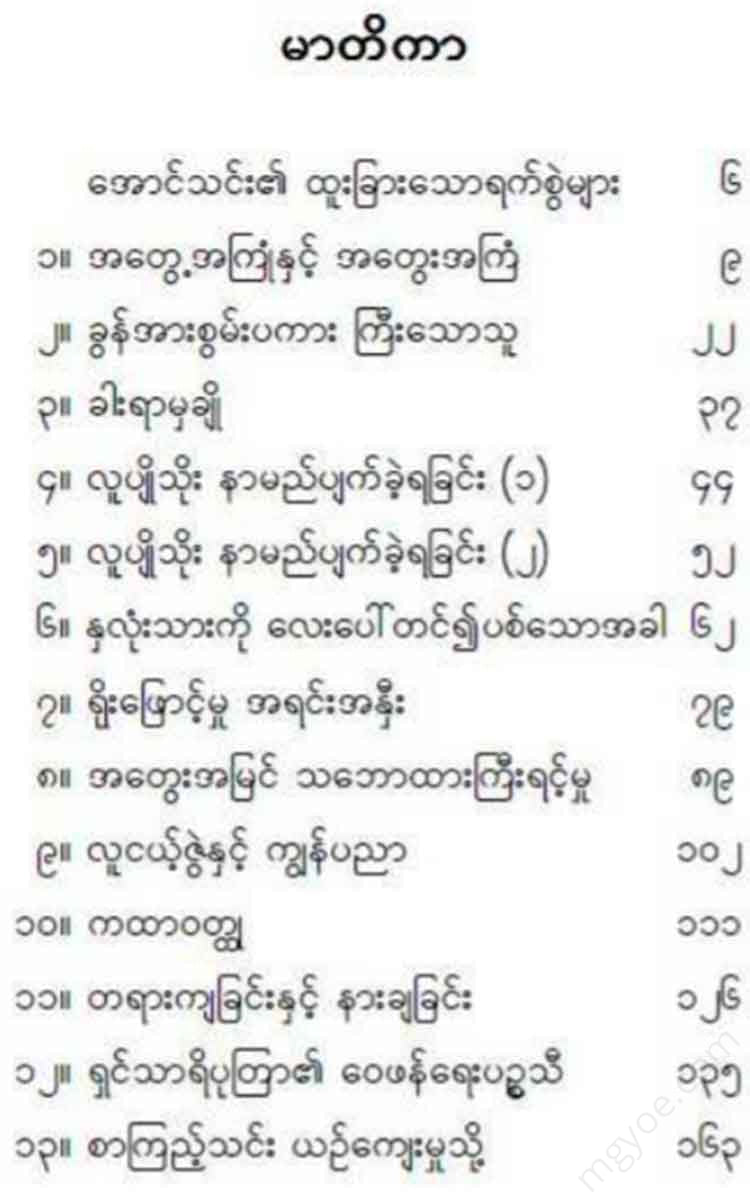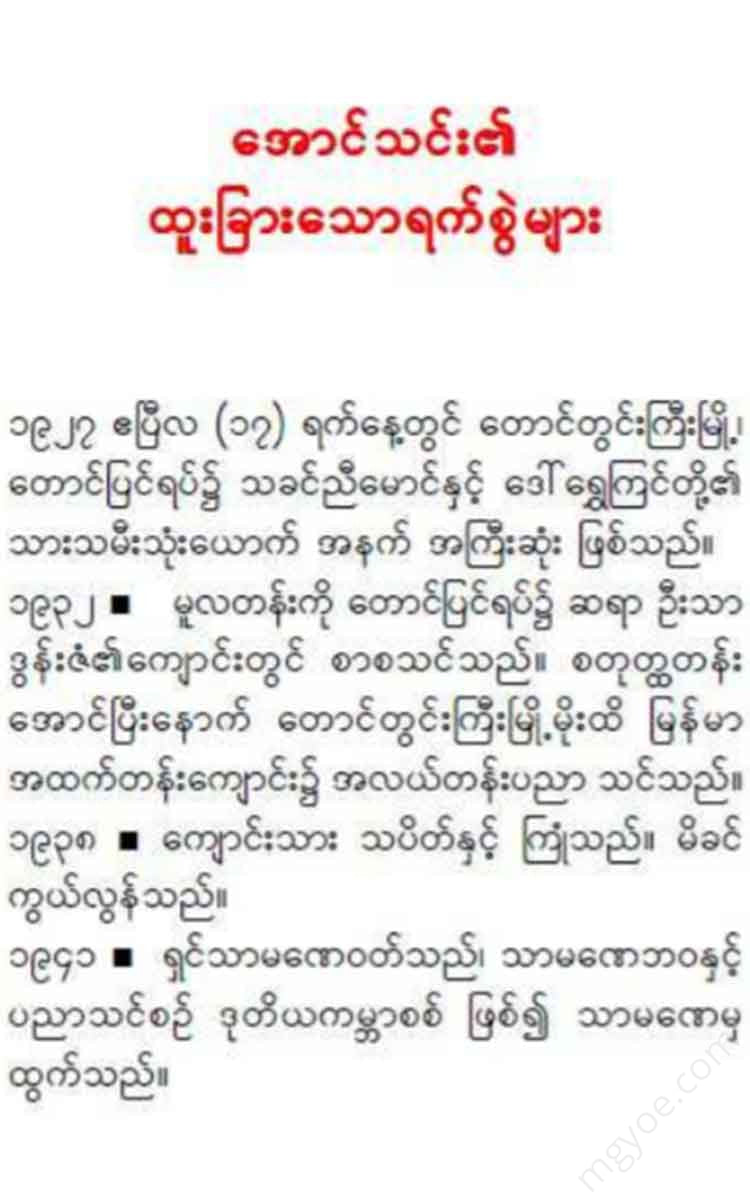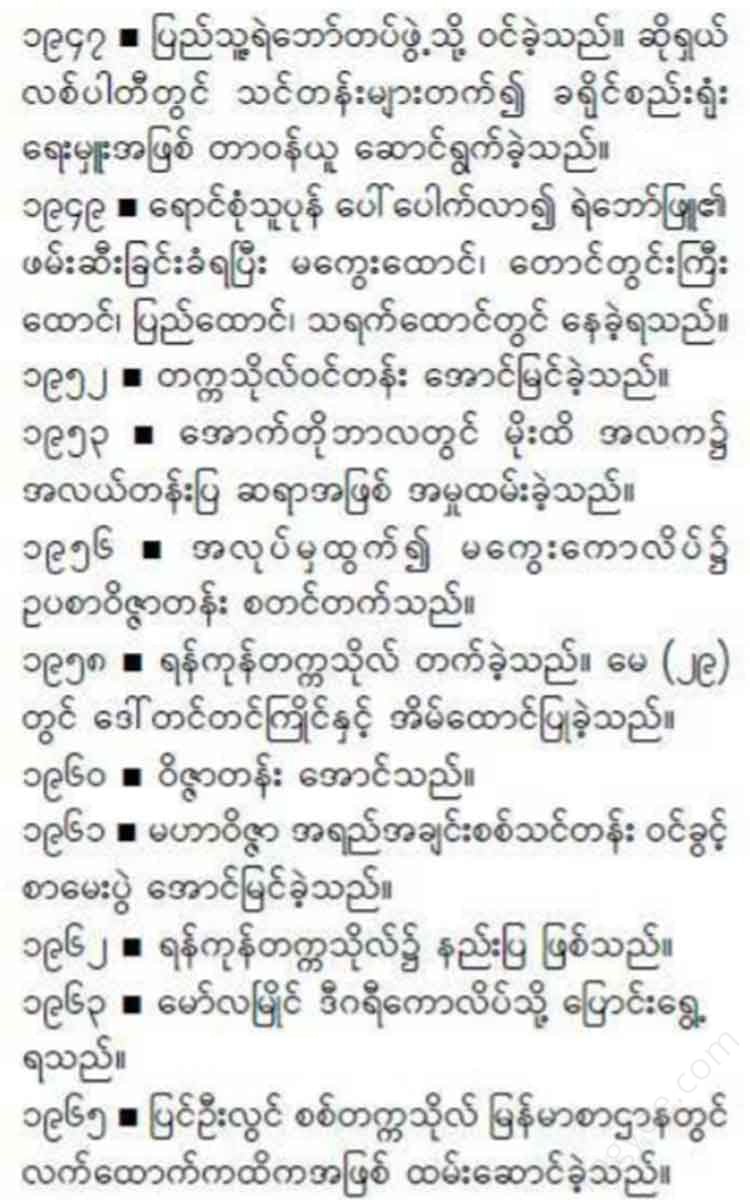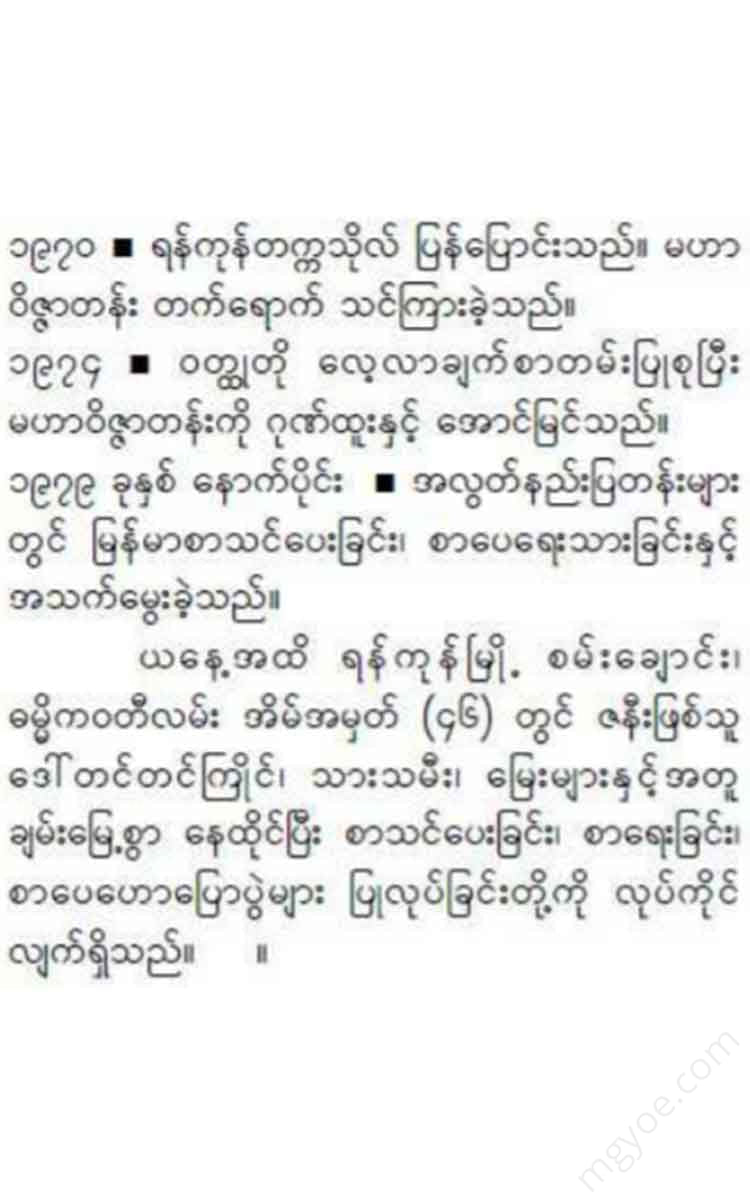Other Websites
Aung Thin - Experience and Thoughts
Aung Thin - Experience and Thoughts
Couldn't load pickup availability
Experience and ideas
In my book of literary articles
The articles are divided into four sections, and the opening words for the section titled "Thoughts and Experiences" are:
We have to think based on experience. Again, we have to experience based on thought. Again, we have to experience based on experience -
"...and so on. Even now, when I reread it, I still like that phrase. Sometimes, I write things like, "I base my thoughts on experience."
What often comes to mind is the story of Newton, the great scientist who, after seeing a key fall, wondered, “What is it that falls? Why does it fall?” and then came up with the theory of gravity. Key
It must be said that people have experienced falling since the beginning of time, but no one has ever thought about it like him.
No matter how great or numerous the experience, there is no thought in that experience.
I think that it will not be of any benefit to other people (or) the world. If you have a relatively small amount of experience, if you think deeply about their thoughts, their thoughts will be very different from yours.
It should be said that it always benefits humanity. I also think that a scholar means such a person.
I am introducing myself like this because I want to talk about the process of “going from experience to thought.”
They probably know. That's right. It's because they want to present the thoughts and ideas of "Maha Thila Sayadaw" who compiled the "Loka Dhamma Htoo Paung Khaki".
Experience can be something you experience yourself. It can also be something you learn from the experiences of others. Even among the experiences of others, there are also experiences of people of your own time and experiences of people of the past that can only be found in history.
It is not easy to find and read the Sayadaw's "Compendium of Worldly Dharma" all at once.
But some excerpts are easy to find. In the “Tenth Grade, Original Myanmar Prose Selection” published by the “Basic Education Curriculum, Curriculum and Textbook Committee”, it is included under the title “Konbaung Niti”. Therefore, I can taste the excerpts taken from a student of about ten grades. After reading the tone of the Sayadaw’s writing carefully, I think that Sayadaw has a very sharp mind. He also seems to be short-tempered. I remember that he is not very patient with people who just talk and do not understand.
Now, this article is not about analyzing the Sayadaw's character, but rather about presenting his "thoughts," so I will only present relevant examples.
When the great king and minister Banyakjang went to another forest, he sent his two sons away and gave them titles. When the father arrived, he was happy and said that he had received the titles. My lord gave my sons titles because of my face. Hasn't the country been destroyed by doing this? Is it true? No, it is not true. Because of you, my lord cannot defeat a dog, an enemy. What title should those who have received the title and have constantly sacrificed their lives for you receive? He said that he would give up his title and send his two sons away. Banyakjang Forest Tradition.
Maha Tha La Sayadaw was a monk from the Konbaung period. Since he referred to the teachings of Inwa Tha Loon, it can be said that he was retelling historical experience. I would like you to continue reading about the Sayadaw's thoughts and ideas based on that historical experience.
In accordance with this rule, the emperors should not give a high rank to a person who has not served, saying that they want to promote him to a high rank. Even if they give him a high rank, they should not give him a high position. Take one. They should not be too proud to give him a high rank. Take one. The nobles and the nobles, like Banyakjangdaw, love the affairs of the country more than their children. Take one.
At Inwa, the city governor and his men surrounded the moat around the courtyard of Min Kyaw Swar. Should I insult the emperor's brother, the city governor? Kyaw Swar grabbed his sword and followed him. He ran into the city governor's house and asked for his release. He grabbed his sword and did not attack the city governor with his sword. You grabbed my sword. You insulted me. May you be better. Your order was returned. This is the law of Inwa.
Digging a moat around one's own courtyard was a violation of what only the emperor was allowed to do, and it was a crime to imitate the emperor, so the mayor went to stop him with his thousand soldiers from the city guard.
There is something I thought about and smiled. The governor must have known the character of King Kyaw Swar, and he must have foreseen what he would do. He must have also thought about what he would do. Therefore, as soon as King Kyaw Swar grabbed his sword, he would immediately run into the Golden Palace, saying, “Late foot, traitor,” and I smiled. His reaction was very correct. If he were to respond with the strength of his prisoners, it would be complicated. Now, he would have to travel rather than resist.
I would like to see how the monk analyzed and drew conclusions about this experience.
If you do something that is against the law, even the emperor's brother will be punished by the city governor. Take one note. It is against the law.
As long as there is gratitude and loyalty, the mayor will stop me, and my brother will be trampled on.
Oh, the emperor's order is not unreasonable. Take one note. We, the king's brother, should not be arrogant and arrogant when we are the governor's son. Princes, take one note. If you are arrogant, it is not the governor's fault. It is an insult to your lord. Take one note. When a prince wants to drink in the city of Ava, he must tie a red cloth around his neck and bring it in from behind. The minister of the interior knows, and the minister of the interior sets out to catch him. If he catches him, he will put a woman in the cauldron. He has ordered him to bring in a young woman. He plans to overthrow the entire country with the cauldron. He will kill you right now. The minister also threatens the court. Your Majesty, please be patient. It is not the fault of the court. I have prepared medicine and sent him to you, but he has not yet sent you. Ava's rule. . If the emperor does something that is not right, then the ministers should not follow his wishes. That's all. Take one. Shouldn't you remember that I took it at my own will? The emperor has no morals. Take one.
Finally, the historical experience I want to share is very well-known. You have probably read the thoughts and conclusions of others. Take a look.
The king's daughter, wearing a single piece of cloth and sitting leaning against a dirty pillar, was accused of being ignorant of her wealth in the audience, and for three days he did not speak to her.
In drawing conclusions from this historical experience, they throw rice syrup on the side of the road.
They always think and draw conclusions from the perspective of the austerity policy of the Supreme Monarch, combined with the admonition of a woman who was abducted. Look at the thoughts and conclusions of Mahathir La Sayadaw.
